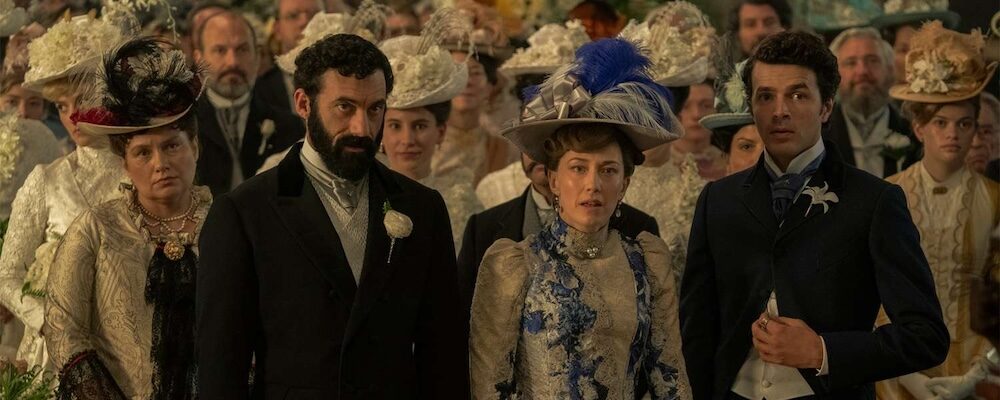‘The Gilded Age’ Stays Refined and Addictive in Expansive Third Season
Alci Rengifo
Shows like HBO’s “The Gilded Age” build a strong following not only because of their opulence, but because the characters become more meaningful than the plot. This ensemble set in the past, among the elites of a bygone world, even lightens up a bit in its third season and spreads its wings a little more. From the beginning the series engaged as an elegant tour through the 19th century world of New York’s upper class. There’s gossipy fun in the endless tensions revolving around arranged marriages and bad manners. Season three understands it needs to expand the narrative and finds poignant material dealing with race while also adding new dashes of adventure.
The season catches up with Agnes (Christine Baranski) and sister Ada (Cynthia Nixon) trying to keep their home in order after nearly facing disaster at the hands of a scammer. Across the street, it is Bertha (Carrie Coon) who is truly grappling with growing challenges. The biggest is controlling daughter Gladys (Taissa Farmiga), who doesn’t seem too keen on the idea of just being paired with a proper husband only for the sake of a convenient arrangement. Bertha’s preferred selection is Hector, Duke of Buckingham (Ben Lamb), who arrives with a rather icy, if not dull, air. Meanwhile, Bertha’s husband George (Morgan Spector) has been heading out west to realize his plans for a cross-country railroad, defying the odds being created by a looming recession. Peggy (Denée Benton), the journalist and closest thing to a hero in this world, is all the while in love with Dr. William Kirkland (Jordan Donica), who introduces her into the world of the Black American elite of Newport.
Fans of “The Gilded Age,” like devotees of “Downton Abbey,” jump right back into this world for the swooning developments. The historical winks can be fun (like an appearance this season by J.P. Morgan), but the addictive appeal is in who will tie the knot or face heartbreak. The updates we want are how Bertha’s son Larry (Harry Richardson) is now shacked up with Marian (Louisa Jacobson), niece of Agnes and Ada. Aurora Fane (Kelli O’Hara) faces the crushing crisis of her husband announcing he’s leaving her for another woman, admitting their marriage was never based on love. Aurora doesn’t want to end it, but the problem is she would need to accuse her spouse of infidelity for the divorce to even go through. The writing takes on a more acute look as well at classism in America. William Kirkland’s mother, Mrs. Kirkland (Phylicia Rashad), raises her nose at Peggy’s father, Arthur (John Douglas Thompson), for having been a slave before the Civil War. When it comes to money, equality can be judged rather differently than just by skin color. Peggy is given more voice this season and complexity. Last season she reported on the racism of the Jim Crow South, this time she faces archaic divisions within a community.
When adapting Edith Wharton’s novel “The Age of Innocence,” set in the same era as “The Gilded Age,” Martin Scorsese described it as a very violent work when you consider the social codes being practiced. Consider a brutal scene where Agnes basically confirms that if Aurora does divorce, she will become an outcast in their aristocratic circle. The stigma would have been too much at the time. No wonder Bertha looks crippled by inner stress because Gladys would rather fall for a peer than just accept being essentially given off to the Duke of Buckingham. Then there’s the titanic clash of egos between Bertha and George. The latter is first introduced this season out in the wild west, laying out his plans for a grand scheme that feels like a passion project and escape from home. On a grander scale, “The Gilded Age” seduces by not just being about the rich. It’s also a portrait of the very specific nature of the American ruling class. They are not as refined as the British, but pretend to be. There’s more of a Puritan streak that makes anything sexual utterly dangerous, unlike the cheerfully debauched Europeans we get in other shows of the same era. “The Gilded Age” is great fun and this season digs deeper, which makes the experience more rewarding.
“The Gilded Age” season three premieres June 22 and airs Sundays at 9 p.m. ET on HBO.

